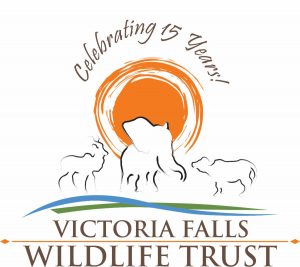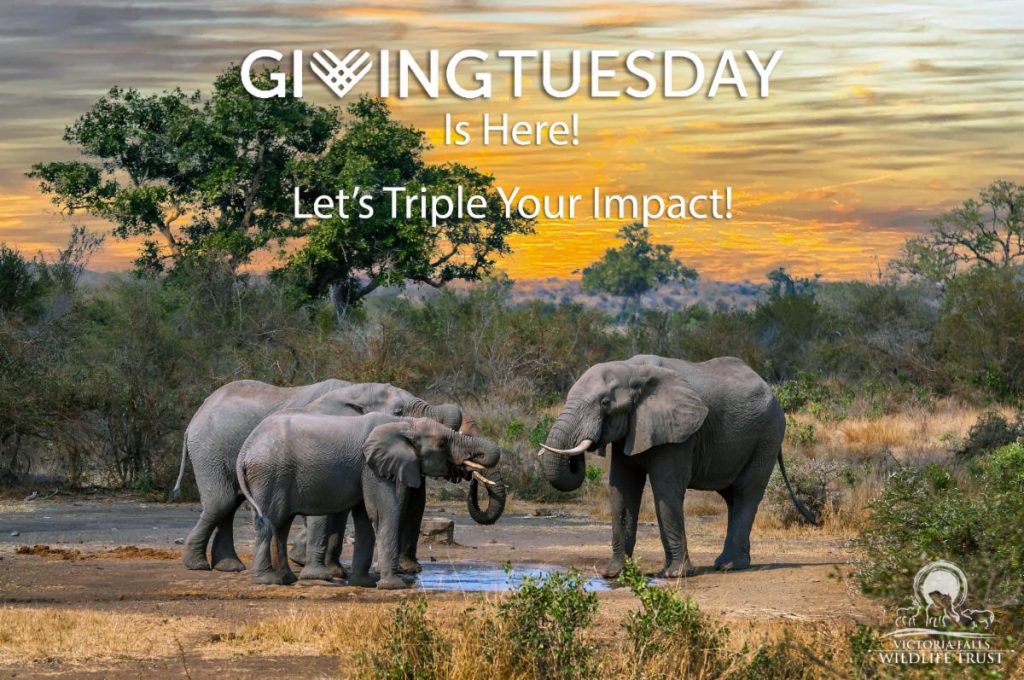
You might remember that in 2020, roughly 350 elephants in Botswana and 35 elephants in Zimbabwe died under very puzzling circumstances. What you won’t remember is the cause of this significant mortality event. Poaching, poisoning, anthrax, and dying of thirst were all ruled out. We simply didn’t know.
A research project led by Victoria Falls Wildlife Trust’s veterinarian, Dr. Chris Fogin, determined that a little-studied bacterium was the culprit in Zimbabwe’s elephants. Excessive heat, prolonged drought, and limited forage created a perfect storm for the opportunistic Bisgaard taxon 45 bacteria to wreak havoc by causing blood poisoning and hemorrhaging in these unsuspecting giants.
Here’s exciting news: Victoria Falls Wildlife Trust has signed an MOU with the Kavango-Zambezi Transfrontier Conservation Area (KAZA TFCA) countries of Angola, Zambia, Namibia, and Botswana to collaboratively combat the illegal wildlife trade, prevent the spread of zoonotic diseases, and react swiftly and effectively in response to unforeseen mortality events like with our elephants.
As the only wildlife forensics and pathology laboratory in the KAZA TFCA, we are expanding our lab’s footprint, capacity, and capabilities to accommodate this collaboration and to support our DNA sequencing work to maintain the genetic health of Zimbabwe’s growing rhino population and other endangered species.
There’s never been a more perfect time to unite for endangered species conservation. Your coveted support, our scientific expertise, a meaningful regional collaboration, and a generous 2:1 match from our generous philanthropic community is a perfect recipe to support this lab expansion and the ground-breaking forensic and pathology work that it will provide to southern Africa. Please support our BIG expansion of our Wildlife Forensics and Pathology Lab on this biggest giving day of the year to save Earth’s largest land mammal.
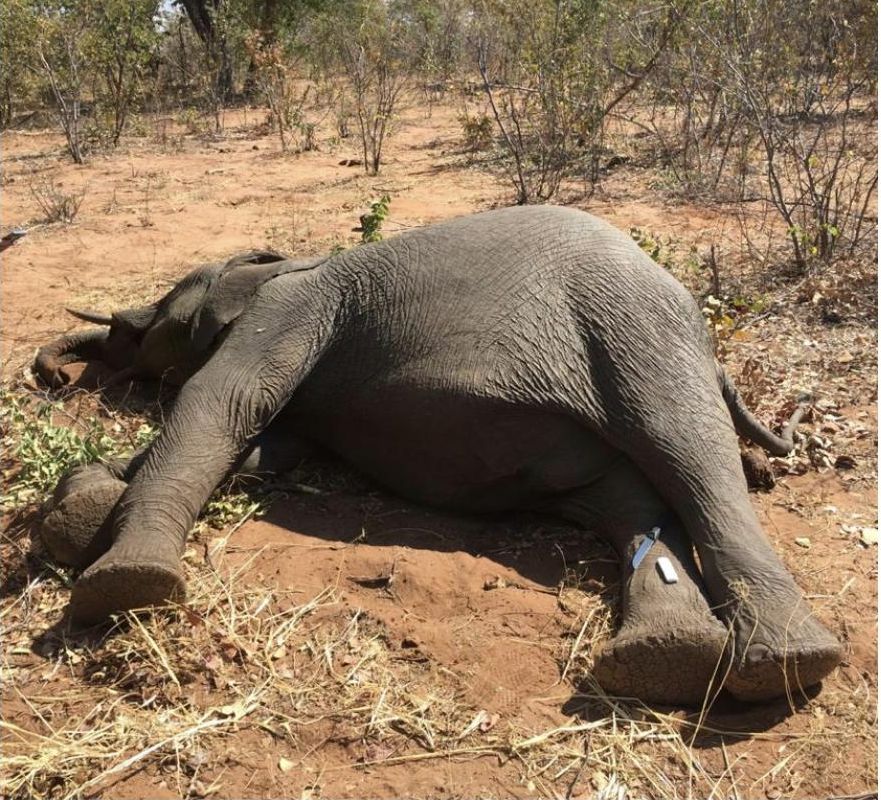 One of the Zimbabwe elephants that died from hemorrhagic septicemia. This bacterium was also linked to the mass deaths of 200,000 critically endangered saiga antelope in Kazakhstan in 2015. We fear that if these environmental factors are worsened in a changing climate, we might see more sudden death mortality events.
One of the Zimbabwe elephants that died from hemorrhagic septicemia. This bacterium was also linked to the mass deaths of 200,000 critically endangered saiga antelope in Kazakhstan in 2015. We fear that if these environmental factors are worsened in a changing climate, we might see more sudden death mortality events.
Photograph: Dr. Chris Foggin, Senior Wildlife Veterinarian, VFWT
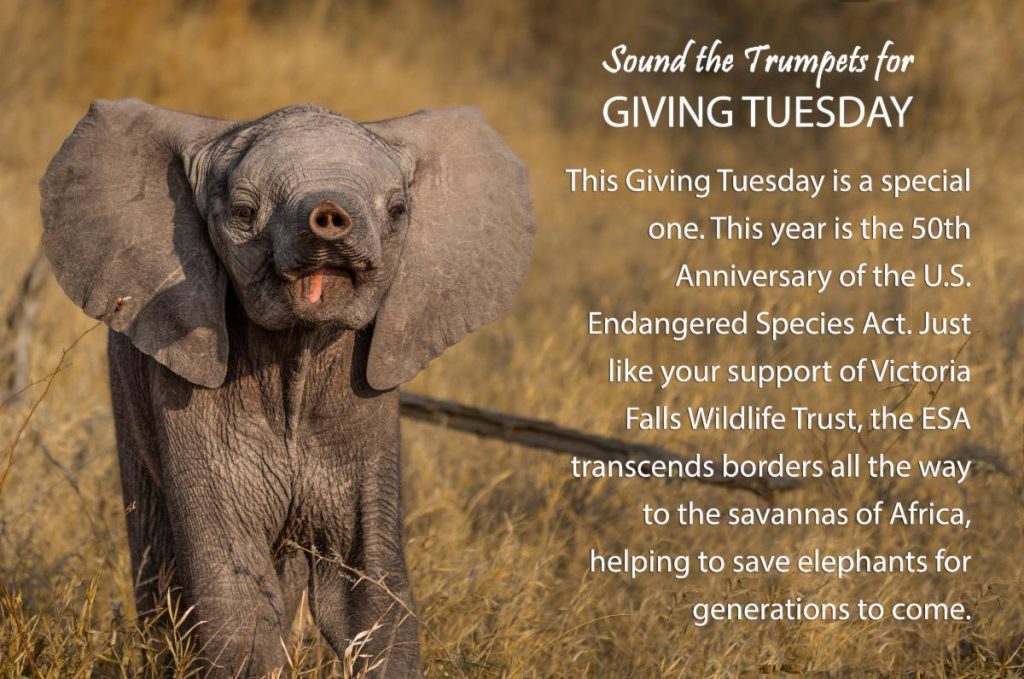
Thank you for standing for elephants, sharing our passion, and giving wildly this #GivingTuesday.
For Wild Africa,
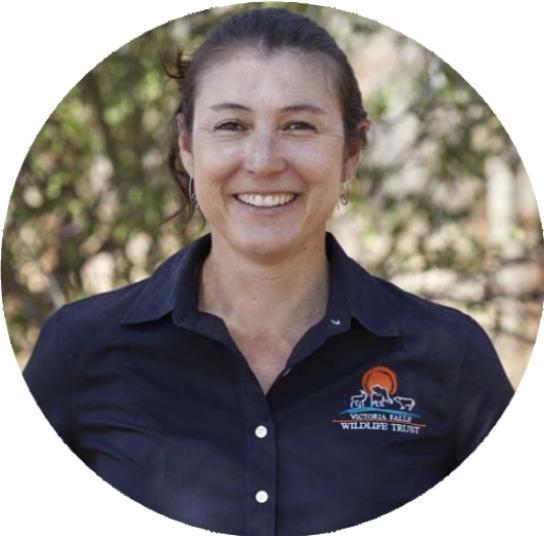
Jessica Dawson
CEO


